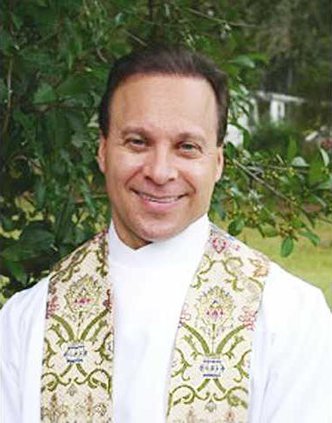Pastors, who are often in the position of providing some comfort following a death, have a unique vantage point from which to recognize the most beneficial actions to a congregant’s family upon the death of a loved one. Often, friends of the deceased are left at a loss, not knowing what should be said or done to be a balm to those grieving.
Last week, I shared advice that may be helpful to those in the midst of grief — the family members themselves. This week, I share my thoughts and observations — for what they are worth — on how others can assist in their healing.
I mentioned in the last issue how important I feel it is for those close family members to just “be a family” in the wake of such a tragedy (expected or unexpected) — to avoid doing anything sudden or rash, or making any critical decisions about the future. I feel this advice is also appropriate for those trying to help.
Look around at a funeral. Roughly 95 percent of the people there have come to give witness to the life lost, and the show support for the family. And without question, many have thoughtfully and generously called the family, stopped by, sent flowers and delivered casseroles.
About 5 percent of the people there have received those calls and gracious, kind gifts from distant family, friends and fellow church members. Those 5 percent, often including a grieving spouse, have appreciated all that has been given them.
But here is what folks may not see. The family is overwhelmed. Their heads are spinning. The surviving spouse may seem strong, collected, saying all the right things, such as, “It’s tough, but we are doing OK,” or “I really appreciate all the people who came out.”
Here is what you will not hear — the truth often underlying what is reality for that spouse: “I have no idea how I am going to face tomorrow,” or “I don’t think I am going to be OK.”
And hey, when you look around and see the support from friends and church members during the funeral, you can’t help but feel they will be OK. Let’s face it, the family appears to be taken care of — in the short-term.
But, and this is an important “but,” soon the calls will slow down and stop. The visits will cease, the cards will stop coming, and the casserole dishes will all be picked up. After all, while everyone loved the deceased and will miss him or her, eventually we all have to get back to life as usual.
Except, there is that 5 percent. There is that 5 percent whose life will never be “as usual” again. Never. Ever.
They will have to carve out a new normal. And it will be painful. It will be one of the most difficult things the family — and without a doubt the spouse — will ever have to do.
So, while it was very important for you to be at the funeral (and we pastors appreciate that very much), there is something much more important that you can do for the person you came to honor.
Go by and see their family. Not the week of the funeral. They are fine then. But rather, three months later. Six months later. When the pain of forging a life without the deceased becomes truly manifest.
In fact, go take their spouse and/or family out to lunch. And for goodness sake, talk about their loved one who has passed on. Oh, please talk about the deceased. Tell them your favorite stories of him or her. Make sure they know he or she is still alive in your heart; believe me, he or she is alive in theirs.
Vow to be part of their “new normal.” The casserole was appreciated, but they have holes no dish can fill. Perhaps you can be part of their healing with your presence. The deceased will be grateful — eternally.
As Jesus hung from the cross, He “then saw His mother, and the disciple whom He loved [John] standing nearby, He said to His mother, ‘Woman, behold, your son!’ Then He said to the disciple, ‘Behold, your mother!’ From that hour the disciple took her into his own household.” (John 19:26-27)
And from this moment forward, Christian love has been in the habit of creating new families.





